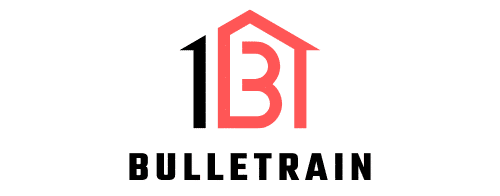Healthy eating is instrumental to maintain our overall health. However, many of you struggle to consistently eat healthily for various reasons. The pressures of work and family responsibilities, the ease of ordering takeout, the allure of processed foods, and simply the lack of time can make it hard to integrate healthier foods into our daily diet. The good news is that there are proven ways to overcome these barriers and embrace a healthier style of eating. This article will guide you through practical tips and strategic approaches to make healthier food choices and create sustainable eating habits.
Recognizing Your Barriers to Healthy Eating
The first step towards overcoming barriers to healthy eating is understanding what they are. For many people, time constraints, ingrained eating habits, and lack of knowledge about nutritious foods can be significant hurdles.
A lire également : How to manage stress and anxiety in teenagers?
In today’s fast-paced world, you may often find yourselves scrambling to meet deadlines, leaving little time to prepare nutritious meals. Instead, you may rely on convenient, yet unhealthy, fast food options. Such time pressures can pose a significant barrier to maintaining a healthy diet.
Ingrained eating habits can also hinder your efforts towards healthier eating. Unhealthy food preferences are often formed during childhood and can be hard to change. Additionally, many people are simply unaware of what constitutes a healthy diet. They may lack information about how to prepare balanced meals, or may misunderstand the nutritional value of certain foods.
En parallèle : How can you effectively manage chronic stress?
Remember: Recognizing your specific barriers is the first crucial step towards overcoming them.
Strategies for Overcoming Time Constraints
A common barrier to healthier eating is lack of time. However, with a bit of planning and prep, you can overcome this hurdle.
Planning your meals for the entire week can be a game-changer. You can dedicate a few hours over the weekend to plan your meals, shop for groceries, and prep as much as you can. This could include chopping vegetables, portioning out snacks, or even cooking some meals in advance.
Another time-saving measure is to opt for quick and healthy recipes. Think stir-fry vegetables, grilled chicken, or whole grain salads. These meals are not only nutritious but also take less than 30 minutes to prepare.
Moreover, you can utilize kitchen gadgets to save cooking time. Slow cookers, pressure cookers, and air fryers can significantly cut down on cooking time, making it easier to prepare healthy meals even on busy days.
Changing Ingrained Eating Habits
Often, your eating habits are deeply ingrained and automatic. You may reach for a bag of chips when stressed or order a pizza when you don’t feel like cooking. Overcoming these barriers involves conscious effort and mindfulness.
Start by keeping a food diary. Write down what you eat, when you eat, and how you felt before eating. This can help you identify patterns and triggers. Did you eat junk food because you were bored? Or because it was convenient? Once you recognize these triggers, you can take steps to address them.
Substituting unhealthy foods with healthier alternatives is another effective strategy. Instead of chips, have a bowl of popcorn. Craving for sweets? Reach for a piece of fruit instead of a candy bar. Over time, these small substitutions will change your eating behavior.
Remember: Positive changes, no matter how small, can lead to healthier eating habits over time.
Increasing Knowledge About Nutritional Foods
Many of you may want to eat healthier but may not know where to start. Increasing your knowledge about nutritious foods and how to incorporate them into your diet can help overcome this barrier.
Educate yourselves about different food groups and the nutrients they provide. For example, fruits and vegetables are high in fiber and vitamins, while lean proteins provide essential amino acids for muscle growth and repair. Whole grains are a great source of complex carbohydrates, and healthy fats from sources like avocados and olive oil are crucial for heart health.
Learning to read food labels can also empower you to make healthier food choices. These labels provide information about the nutritional content of foods, enabling you to compare and choose healthier options.
Adapting to the Reality of Healthy Eating
Healthy eating is not about strict dietary limitations, staying unrealistically thin, or depriving yourselves of the foods you love. Rather, it’s about feeling great, having more energy, improving your health, and stabilizing your mood.
The path towards healthier eating is not a straight one, there will be ups and downs, successes and setbacks. Don’t beat yourselves up over a cheat meal or an indulgent weekend. Instead, strive for progress, not perfection. Make sustainable changes, take small steps, and gradually shift towards healthier eating habits.
Remember: It’s not about being perfect; it’s about making healthier choices more often.
Overcoming barriers to healthy eating may seem daunting, but with understanding, planning, and persistence, you can certainly make a positive change. Incorporate these strategies into your lifestyle and you’ll be well on your way to a healthier, happier you.
Saving Money While Eating Healthy
One of the barriers people often face when trying to adapt to a healthier lifestyle is the perceived expense associated with it. However, it’s important to note that eating healthily does not necessarily have to be costly.
To overcome this obstacle, a key strategy is to plan and prepare your meals at home. This not only allows you to control what goes into your food but can also save money as compared to frequently eating out or ordering takeout. Make a habit of preparing a shopping list before you go grocery shopping. This will help you avoid impulse purchases and stick to your health and budget goals.
Remember that fruits, vegetables, and whole grains are not only healthier options but can also be economical, especially when you buy them in season or in bulk. Additionally, consider incorporating more plant-based proteins like beans, lentils, and tofu into your diet. They are often cheaper than meat and are excellent sources of protein.
Another money-saving tip is to reduce waste. You can do this by utilizing your leftovers properly. For instance, leftover vegetables can be used in salads or stir-fries, while leftover meat can be added to soups or sandwiches.
Remember: Healthy eating does not have to be expensive. With proper planning and smart choices, you can enjoy nutritious meals while staying within your budget.
Healthy Eating for Older Adults
As we age, our nutritional needs change, thus making healthy eating even more important for older adults. However, barriers like lack of motivation, physical difficulties, or health issues can hinder healthy eating habits in this population.
If you are an older adult who finds it hard to cook, consider meal planning or prepping in advance. You can also look into meal delivery services that offer healthy options. If physical difficulties are preventing you from preparing meals, simple and easy-to-make dishes can be a good option.
You can also seek assistance from local community resources. Many communities offer meal programs or food delivery services for older adults. Additionally, some grocery stores offer online shopping and delivery options which can be a great help for those who find it hard to go grocery shopping.
If health issues are getting in the way of eating a balanced diet, talk to your healthcare provider. They can provide guidance and help you adjust your eating habits to your specific health needs.
Remember: Regardless of age, it’s never too late to start eating healthier. Reach out to available resources and make the necessary adaptations to overcome barriers.
Conclusion
Overcoming barriers to healthy eating is undeniably challenging. It requires understanding your obstacles, making strategic plans, and persistent execution. However, the rewards of maintaining a healthy diet far outweigh the effort. Healthy eating contributes to overall well-being, boosts energy, enhances mood, and can prevent a multitude of health issues.
Whether your barriers are time constraints, ingrained unhealthy habits, lack of knowledge about nutritious foods, financial concerns, or age-related issues, the strategies outlined in this article can help you navigate these obstacles. By making healthier food choices more often, planning in advance, replacing unhealthy foods with better options, educating yourself about nutrition, saving money while eating healthy, and adapting to age-related nutritional needs, you can indeed make a significant change.
Remember, the goal is not to be perfect but to make progress. Healthy eating is a journey, not a destination. So, embrace the journey, celebrate small victories, and gradually move towards a healthier lifestyle. No matter how small the change is, it’s a step in the right direction.











